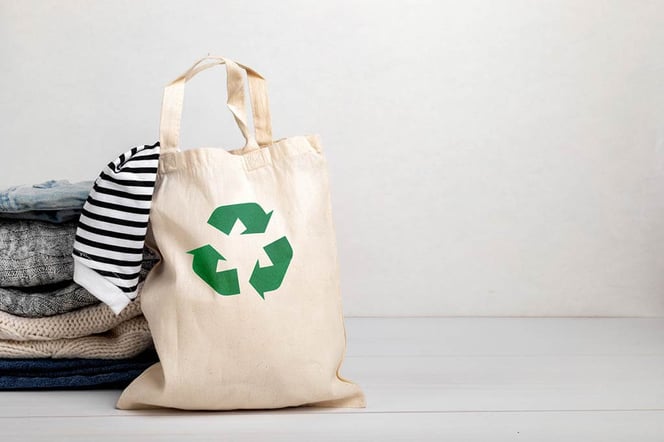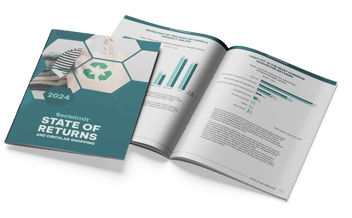Reuse is the key to a circular economy
The future of production and consumption must undoubtedly become more circular than today – and this applies to all industries and types of products. Everyone must do their utmost to take significant steps away from the throwaway mentality that has characterised our consumption for too long.
Reclaimit has developed a new service to assist industry players in meeting stricter requirements for circular thinking and sustainability at all stages while gaining control and transparency over reused products.
Increased product lifespan
If products last longer – and can easily be repaired and upgraded – they can be used much longer than today and contribute more to reuse, thus becoming a crucial pillar in the circular economy.
Therefore, the EU has developed an action plan for a greener Europe, emphasizing the importance of producing and consuming more sustainably. The plan, effective from March 1, 2021, is intended to serve as a guiding document for the circular economy, aiding both producers and consumers in acting as sustainably and environmentally friendly as possible.
The EU Commission will propose legislation for so-called ecodesign as part of the plan. In simple terms, this involves a sustainability policy ensuring that products in the EU market are designed to last, are easy to repair, and are recyclable. Products should also contain the highest possible percentage of recycled materials, and single-use products should be significantly limited in the EU. The goal is for sustainable products to become the new norm.
Negative experiences
The EU Commission will also introduce stricter public procurement rules while placing higher demands on comparable and verifiable information and documentation to facilitate consumers' environmentally conscious and climate-smart choices. For example, products must provide clear information on sustainability, repairability, and disposal. In other words, manufacturers, suppliers, and retailers must be prepared to take much greater environmental responsibility in the future.
The EU has identified several sectors critical for transition, including the electronics industry, characterised by significant raw material usage, long shipping distances, short product lifecycles, and generally rapid discarding. Therefore, in 2021, the EU is already tightening regulations for electronic products to ensure better access to spare parts, repair services, and service manuals.
To increase material recycling and reduce waste, the new rules require that electronic products last longer, use less energy, and be repairable. There are requirements for products to be assembled with screws instead of glue or welding to facilitate easier repairs. Additionally, spare parts must be available for ten years from the product's release, and documentation for product repairs must be accessible to all approved workshops. The EU Commission also aims to adopt new regulatory measures for mobile phones, tablets, and laptops and implement an overarching take-back scheme for returning or selling old devices and chargers in the long run.
A secure and quality reuse requires the right solution
One of the challenges to meet the new requirements is to ensure quality reuse – in other words, that products given a second life on the reuse market function properly and are safe. In many cases, this is an absolute necessity, as a faulty electronic product, for example, can be life-threatening.
In Norway, the Norwegian Consumer Electronics Trade Foundation (Elektronikkbransjen) – the first European industry association – has taken the initial steps toward a maximally circular economy for its members. Elektronikkbransjen commissioned Reclaimit to develop an online service where producers, workshops, stores, and other reuse actors can access a unified system solution that provides control and a quality stamp for reused or repaired products. The system solution is designed to promote circular work in the simplest way possible, and each store and workshop has its account in the service where they can see all information about the products they handle or have handled.
By registering reuse products in the system, total transparency and traceability are created around all repairs, sales, and warranty status. Authorised workshops and other service providers ensure that the products are either repaired or upgraded and that they have been functionally and safety tested according to industry practices, explains Seppo Tanskanen, CTO of Reclaimit.
Through collaboration with an insurance company, Elektronikkbransjen also offers a two-year warranty when reused products registered in the system are resold to consumers. Overall, this ultimately creates security for both stores selling reused products and end consumers buying them. Stores know they are selling a functioning product connected to an insurance guarantee, and customers can confidently purchase a used product that they know is safe. Moreover, it strengthens manufacturers' brands as reliable providers of long-lasting and sustainable products.
The service and system developed by Reclaimit are not limited to electronic products; on the contrary, there is great potential to connect all industries that want and need to work in a circular direction, with reduced waste and more prolonged product usage.
The idea with the system is that it can be used for any industry sector and accelerate and facilitate the much-needed transition to a circular economy, says Seppo Tanskanen.




